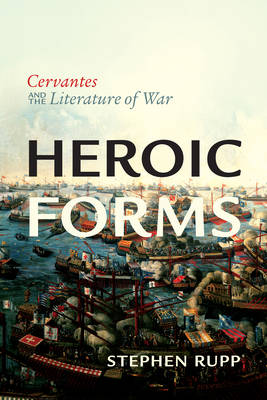
- Retrait gratuit dans votre magasin Club
- 7.000.000 titres dans notre catalogue
- Payer en toute sécurité
- Toujours un magasin près de chez vous
- Retrait gratuit dans votre magasin Club
- 7.000.0000 titres dans notre catalogue
- Payer en toute sécurité
- Toujours un magasin près de chez vous
Description
Before he was a writer, Miguel de Cervantes was a soldier. Enlisting in the Spanish infantry in 1570, he fought at the battle of Lepanto, was seized at sea and held captive by Algerian corsairs, and returned to Spain with a deep knowledge of military life. He understood the costs of heroism, the fragility of fame, and the power of the military culture of brotherhood.
In Heroic Forms, Stephen Rupp connects Cervantes's complex and inventive approach to literary genre and his many representations of early modern warfare. Examining Cervantes's plays and poetry as well as his prose, Rupp demonstrates how Cervantes's works express his perceptions of military life and how Cervantes interpreted the experience of war through the genres of the era: epic, tragedy, pastoral, romance, and picaresque fiction.
Spécifications
Parties prenantes
- Auteur(s) :
- Editeur:
Contenu
- Nombre de pages :
- 272
- Langue:
- Anglais
- Collection :
Caractéristiques
- EAN:
- 9781442649125
- Date de parution :
- 21-10-14
- Format:
- Livre relié
- Format numérique:
- Genaaid
- Dimensions :
- 155 mm x 231 mm
- Poids :
- 544 g

Les avis
Nous publions uniquement les avis qui respectent les conditions requises. Consultez nos conditions pour les avis.






